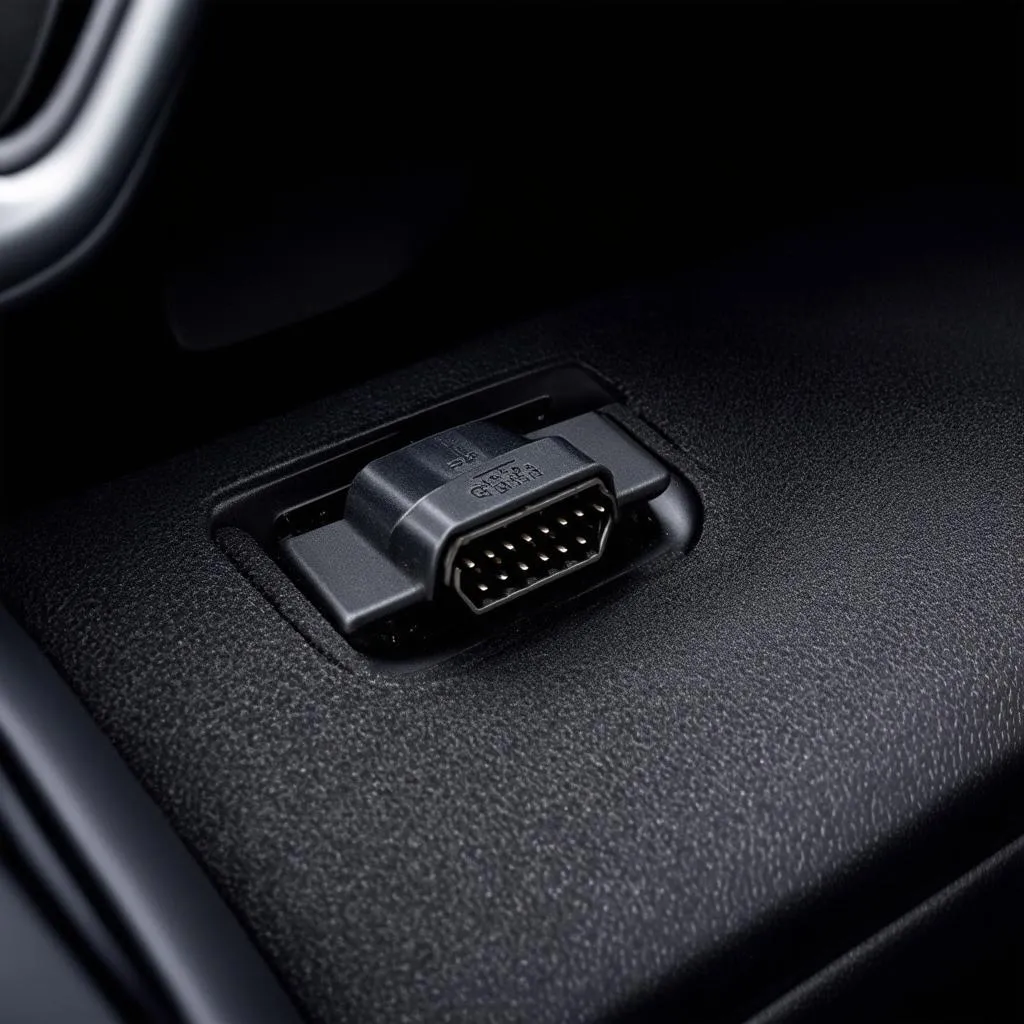Imagine this: you’re a car enthusiast, spending your weekends tinkering under the hood of your prized 2018 Ford Mustang. You’ve just installed a new performance chip, but now you’re worried about voiding your warranty. Enter the “Dummy Obd Port” – a curious little device that might just be your new best friend. But what exactly is it, and how can it help you?
What is a Dummy Obd Port?
Let’s break it down. OBD stands for On-Board Diagnostics, and the OBD port is that little trapezoidal connector usually located under your dashboard. It’s a gateway to your car’s computer, allowing mechanics and DIYers to diagnose issues, read data, and even reprogram certain settings.
Now, a dummy OBD port is essentially a non-functional replica of this port. It plugs in like the real deal but doesn’t actually connect to anything within your car’s electrical system. Think of it like a decoy, diverting attention away from the real OBD port.
Why Would You Need a Dummy Obd Port?
This is where things get interesting. Here are a few scenarios where a dummy OBD port could come in handy:
- Warranty Protection: As in our Mustang example, installing aftermarket performance parts can sometimes void your warranty. A dummy OBD port can help mask these modifications from dealership scanners, potentially saving you from headaches down the line.
- Deterring Theft: In some cases, thieves use the OBD port to reprogram keys and steal vehicles. A dummy port can act as a deterrent, making it more difficult for them to access your car’s system.
- Protecting Sensitive Data: As cars become increasingly connected, the OBD port could become a target for hackers. A dummy port can add an extra layer of security, making it harder for unauthorized access to your vehicle’s data.
 Dummy OBD port installed in a car
Dummy OBD port installed in a car
Dummy Obd Ports: Myths and Realities
While dummy OBD ports can be useful tools, it’s important to separate fact from fiction.
Myth: Dummy OBD ports are a guaranteed way to hide modifications and prevent theft.
Reality: While they can make it more difficult, determined thieves and experienced mechanics can often identify and bypass dummy ports.
Myth: Installing a dummy OBD port is complex and requires extensive knowledge of car electronics.
Reality: Many dummy OBD ports are designed for simple plug-and-play installation. However, it’s always a good idea to consult your car’s manual or a trusted mechanic if you’re unsure.
Choosing and Using a Dummy Obd Port
If you think a dummy OBD port is right for you, here are some factors to consider:
- Compatibility: Ensure the dummy port is compatible with your car’s make and model.
- Quality: Choose a high-quality dummy port from a reputable manufacturer to avoid potential issues.
- Installation: While most are plug-and-play, familiarize yourself with the installation process beforehand.
 Mechanic examining an OBD port
Mechanic examining an OBD port
Beyond the Dummy: Other OBD-Related Questions
You might also be wondering:
- What are the risks of using an OBD scanner on my own car?
- Can I use a dummy OBD port with a performance chip?
- Are there any legal implications to using a dummy OBD port?
For answers to these questions and more, be sure to check out our other articles on OBD ports and car diagnostics.
Need Help with Your Car’s Electronics?
We understand that navigating the world of car electronics can be daunting. If you’re unsure about anything related to your car’s OBD port or need assistance with diagnostics tools, don’t hesitate to reach out! Our team of automotive experts is available 24/7 to help. Contact us via WhatsApp at +84767531508.
We’re here to help you keep your car running smoothly and safely!